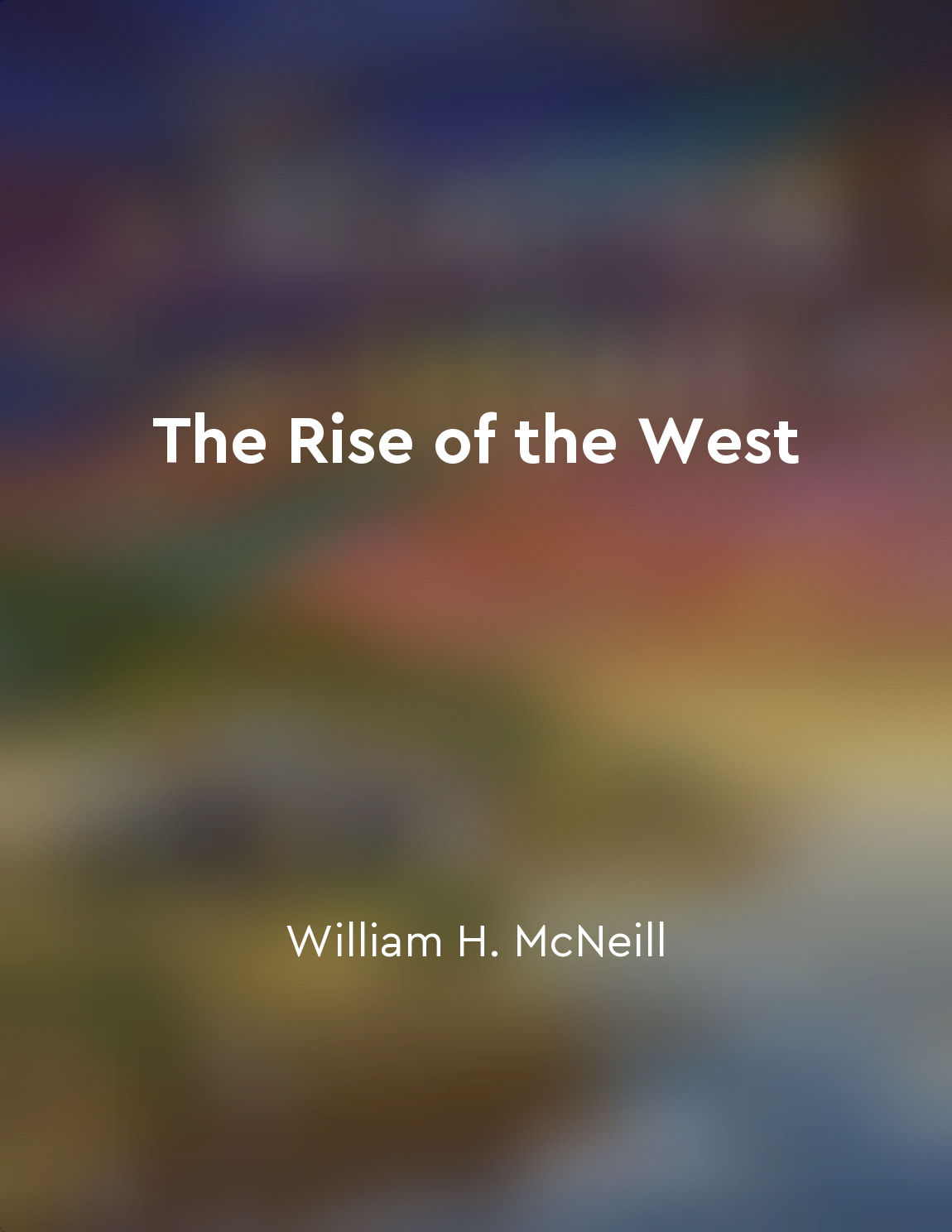Economic growth leads to societal changes from "summary" of The Rise of the West by William H. McNeill
Economic growth, as I have sought to demonstrate in this work, has played a crucial role in shaping societies throughout history. The rise of the West, in particular, can be attributed to the economic transformations that took place within European societies. These transformations were driven by a variety of factors, including technological innovation, trade networks, and the development of a market economy. One of the key ways in which economic growth leads to societal changes is through the expansion of trade networks. As societies grow economically, they often seek to establish trade relationships with other societies in order to access new markets and resources. This process of economic exchange can lead to the spread of ideas, technologies, and cultural practices between different societies, ultimately influencing the development of those societies in profound ways. Furthermore, economic growth can also lead to changes in social structures and institutions. As societies become more economically advanced, they often develop new social classes, political systems, and legal frameworks to regulate economic activity. These changes can have far-reaching implications for the way in which society is organized and governed, shaping the relationships between individuals, communities, and states. In addition, economic growth can impact the environment in significant ways. As societies grow economically, they often exploit natural resources at an increasing rate, leading to environmental degradation and resource depletion. This can have a detrimental effect on the health and well-being of both current and future generations, necessitating changes in the way in which societies interact with their natural surroundings.- The concept of economic growth leading to societal changes is a complex and multifaceted one. It encompasses not only the material and technological aspects of economic development, but also the social, political, and environmental implications of that development. By understanding the ways in which economic growth has shaped societies in the past, we can gain valuable insights into the challenges and opportunities that lie ahead as we continue to navigate the complexities of a globalized world.
Similar Posts

The field of biology is constantly evolving with new discoveries
The story of biology is a tale of constant change and evolution. From the discovery of DNA to the mapping of the human genome, ...
The decline affects all aspects of society
The phenomenon of decline is not limited to a single domain or sector of society. Rather, it is a pervasive force that permeate...
Feminist perspective on ecology
Carolyn Merchant presents a feminist perspective on ecology that emphasizes the interconnectedness of human society and the env...
Labor provides the foundation for economic activity
Labor is the bedrock upon which economic activity rests. Without the efforts of individuals to transform raw materials into goo...
Environmental degradation must be addressed
The accelerating loss of biodiversity, the progressive degradation of soils, the contamination of water and air, and the relent...
Economic interdependence promotes peace and stability
Economic interdependence promotes peace and stability. When countries trade with each other, they become less likely to go to w...
Social protection as necessary counterbalance
One of the central ideas put forth in 'The Great Transformation' is the notion that social protection must act as a necessary c...
Industrialization can drive economic growth
Industrialization is a key driver of economic growth in developing countries. By shifting from an agrarian-based economy to one...
Consider the implications of climate change on future generations
In the grand tapestry of time, we find ourselves at a crucial juncture where the decisions we make today will shape the world t...


